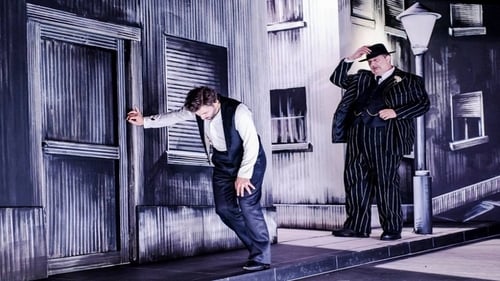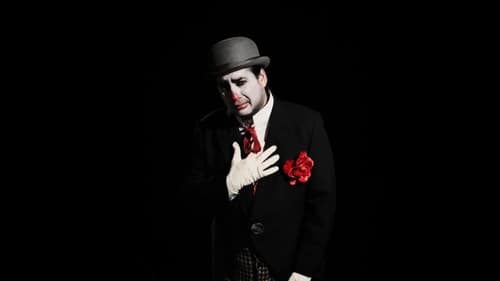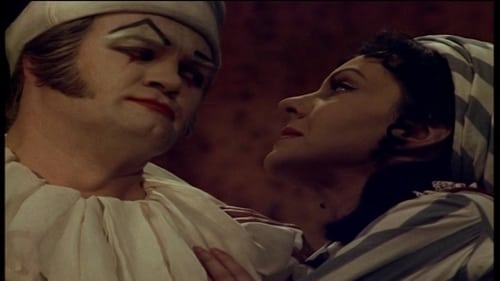Ruggero Leoncavallo
Nascimento : 1857-04-23, Naples, Italy
Morte : 1919-08-09

Music

Writer
As comparably short operas, Cavalleria Rusticana and Pagliacci are often billed together, but seldom is the lead tenor making his double role debut as Turiddu and Canio on the same evening. At the 2015 Salzburg Easter Festival, Jonas Kaufmann did just that to rapturous praise. Universally hailed as a coup for Kaufmann, the plaudits were also showered on Philipp Stölzl for his innovative staging which includes live video projections while referencing the era of black-and-white movies.

Writer
Director David McVicar’s new production brings opera’s favorite double bill to new life, setting the two operas in the same Sicilian setting, separated by two generations. Marcelo Álvarez takes on the rare feat of singing both leading tenor roles. In Cavalleria, he is Turiddu, the young man who abandons Santuzza (Eva-Maria Westbroek) in his pursuit of the married Lola (Ginger Costa-Jackson)—and ends up being killed in a duel with her husband, Alfio (George Gagnidze). In Pagliacci, Álvarez is Canio, the leader of a traveling vaudeville troupe. Patricia Racette sings Nedda, his unfaithful young wife, whose plans to run away with her lover are foiled by her spurned admirer Tonio (George Gagnidze)—with equally tragic consequences. Met Principal Conductor Fabio Luisi is on the podium.

Original Music Composer
Director David McVicar’s new production brings opera’s favorite double bill to new life, setting the two operas in the same Sicilian setting, separated by two generations. Marcelo Álvarez takes on the rare feat of singing both leading tenor roles. In Cavalleria, he is Turiddu, the young man who abandons Santuzza (Eva-Maria Westbroek) in his pursuit of the married Lola (Ginger Costa-Jackson)—and ends up being killed in a duel with her husband, Alfio (George Gagnidze). In Pagliacci, Álvarez is Canio, the leader of a traveling vaudeville troupe. Patricia Racette sings Nedda, his unfaithful young wife, whose plans to run away with her lover are foiled by her spurned admirer Tonio (George Gagnidze)—with equally tragic consequences. Met Principal Conductor Fabio Luisi is on the podium.

Writer
The French tale of a beautiful young woman destroyed by her conflicting needs for love and luxury.

Writer
Manon Lescaut's production was updated and it worked. Highly professional production with two of the best performances I've ever witnessed in any opera. By the end of the third act I was crying and by the end of the fourth act I could not stop the tears. These two can not only sing up a storm they act one as well. This is the best Manon Lescaut I've ever seen and hope the upcoming one at the Met is as good. It truly was thrilling. Kaufmann and Opolais were unbelievably fantastic and the orchestra was superb. Pappano is the kind of maestro you want to sing for as he coaches as in the old days of maestros like Levine, etc. This is highly recommended as a keeper!

Original Music Composer
Ruggero Leoncavallo's opera recorded in 2009. Conductor Stefano Ranzani leads the orchestra and chorus of the Zurich Opera House, with performances by Argentinian tenor Jose Cura, Carlo Guelfi and Fiorenza Cedolins.

Writer
TDK presents a recording of Puccini’s heart-breaking opera from one of the best opera houses of the world featuring star tenor José Cura and remarkable soprano Maria Guleghina as the two inseparable lovers. Riccardo Muti, music director of La Scala at the time of this performance, gives full weight to the alternation of social realism and private amatory psychology, of crowds and intimacy, body and spirit. And the director of this Milan production, the famous Italian film director Liliana Cavani, provides it with a realistic setting. Every scene looks like a genre painting, from which Puccini’s psychograms emerge musically. This forms the background for the two outstanding singer actors, who take the lead roles.

Writer
Live from Glyndebourne 1997

Music
Puccini's Il Tabarro & Leoncavallo's Pagliacci; Pavarotti and Domingo star in MET 1994-1995 season opener.

Writer
The story is set in southern Italy and recounts the tragedy of Canio, the lead clown (or pagliaccio in Italian) in a commedia dell'arte troupe, his wife Nedda, and her lover, Silvio. When Nedda spurns the advances of Tonio, another player in the troupe, he tells Canio about Nedda's betrayal. In a jealous rage Canio murders both Nedda and Silvio. Although Leoncavallo's opera was originally set in the late 1860's, Zeffirelli's production is updated to the period between World War I and World War II.

Writer
"Manon", wrote Puccini to his publisher Giulio Ricordi in 1889, "is a heroine I believe in and therefore she cannot fail to win the heart of the public." This turned out to be a truly prophetic statement since none of Puccinis other world successes were received on their first nights as rapturously as Manon Lescaut. The popularity of Puccinis great masterpiece has never waned and the highly acclaimed Götz Friedrich production at Covent Garden was hailed as an operatic milestone. Two of the worlds leading stars--Kiri Te Kanawa and Placido Domingo--head a strong cast conducted by the brilliant Italian conductor Giuseppe Sinopoli.

Writer
Plácido Domingo accomplishes the rare feat of singing both leads on the same night at the Met in 1978 on opera's most popular double-bill.

Music
Plácido Domingo accomplishes the rare feat of singing both leads on the same night at the Met in 1978 on opera's most popular double-bill.

Writer
Opera's most popular double bill, fondly known as Cav and Pag, can be a tawdry mess or, as in this performance of Pagliacci, a searing experience. Its power derives from an all-star cast headed by tenor Jon Vickers in the double role of betrayed husband, Canio, and tragic clown, Pagliacci. Hes a singer who blurred the division between reality and stage illusion in every role he assumed, thus taking an opera about that thin line between real life and stage artifice to heightened levels of intensity. Vickers is a force of nature, his big, brawny voice suffused with emotion. Here, his phrasing, textual precision, and timbral colorations expand the scope of the opera, making a moving tragedy out of Leoncavallos verismo melodrama.

Compositors
Franco Corelli is featured in this 1954 filmed version of Leoncavallo's opera, along with Tito Gobbi. The film also features opera arias from "The Rose of Stambul," "Aida," "Cavalleria Rusticana," "Igemisco" and "Il Trovatore." 104 minuts, black & white.

Original Music Composer
A taxi driver, with singing ambitions, finds an abandoned baby in his cab and begins to look for his mother. He doesn't find her but succeeds in finding two people who want to adopt the child.

Opera
Pagliacci, is a 1948 Italian film based on Ruggero Leoncavallo's opera Pagliacci, directed by Mario Costa. The film stars Tito Gobbi and Gina Lollobrigida. It recounts the tragedy of Canio, the lead clown (or pagliaccio in Italian) in a commedia dell'arte troupe, his wife Nedda, and her lover, Silvio. When Nedda spurns the advances of Tonio, another player in the troupe, he tells Canio about Nedda's betrayal. In a jealous rage Canio murders both Nedda and Silvio. The only actor in the cast who also sang his role was the celebrated Italian baritone, Tito Gobbi, but the film is largely very faithful to its source material, presenting the opera nearly complete.

Story

Writer
Canio and his Comedia dell'Arte troupe tour Italy. His wife Nedda meets a young cadet and they plan to elope. He tries to leave her when he finds how important she is for his husband, but a rejected trouper interferes. As jealous Canio suspects the truth the tragedy approaches. The film was partly made in Ufacolor.

Opera
Scenes from Ruggero Leoncavallo's opera with Canio, the clown, introducing actors who are seen in pantomime while the operatic voices are heard off-screen. Canio discovers his wife has been unfaithful but carries on with his performance.
















